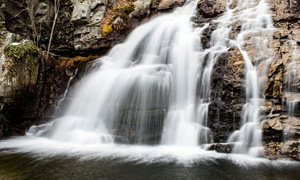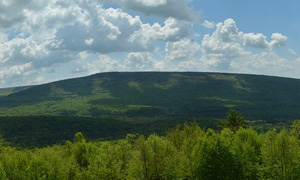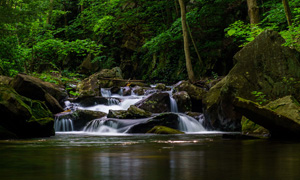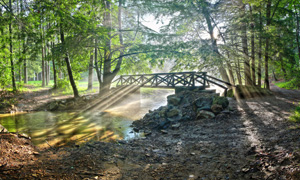Parks, Forest and Recreation—Essential to Pennsylvania Health and Economy
by Marci Mowery, Pennsylvania Parks and Forests Foundation and Tim Herd, Pennsylvania Recreation and Parks Society
Seventy-three percent of adults surveyed across Pennsylvania and 68 percent of primary care clinic visitors in Hershey, Pa., consider parks, trails, and open space to be a critical part of the health care system, according to a recent Penn State study.
Yet these same parks, forests, trails and open spaces are threatened by the current budget proposal (HB 218) which looks to reduce the Department of Conservation and Natural Resources (DCNR) estimated cost-to-carry budget by 16%, or $60 million. DCNR is the agency that manages our state parks and forests, invests in community recreation and trail development, and supports the preservation of open space across Pennsylvania.
Cuts to the already tight DCNR budget could have devastating impacts to the systems we all appreciate, not just for their health benefits, but also for the quality of life and economic benefits they bring to local communities. A 2010 study by the Pennsylvania State University found that for every $1 of tax payer money invested in a state park, more than $12.50 came back to the state in tax revenue. These parks, many of which are rural, support over 12,000 jobs in the local communities that surround them and support $1.1 billion in sales. Community parks are their own economic engines, with a 2013 study by the National Recreation and Parks Association showing that on a national scale, they support over $1.6 billion in economic activity annually.
Parks, forests and open space also provide ecological benefits that translate into economic benefits. For example, in the Lehigh Valley open space provides $355 million in water supply, flood control, pollination, and habitat services. In Philadelphia, 10,344 acres of parkland saved $5.9 million in storm water management costs.
Improved quality of life because of access to parks, forests, recreation, and trails also contributes to the economic well-being of the commonwealth through increased property values, creation of livable communities that attract businesses and industry, and provide access to programmable space for engaging the public. The 150-mile Great Allegheny Passage generates more than $40 million in revenue each year, while the area known as the Pennsylvania Wilds created more than 370 jobs based on outdoor tourism since 2008, and generates more than $1.7 billion annually through visitor spending.
Despite all of the evidence supporting a need to invest in the Department of Conservation and Natural Resources, whose budget is only one-half of one percent of the overall budget of the Commonwealth, we are instead faced with devastating cuts which could mean:
- Shortened camping seasons, potentially removing shoulder seasons that accommodate anglers and hunters
- Significantly reduced access to overnight accommodations of all kinds
- Reduction in staffing that keep visitors safe, that educate the public, and that keep our parks and forests running smoothly
- Reduced visitor center hours in state parks
- Elimination of capacity to meet the demand for new or connector trails
- Reduction in routine maintenance, such as lawn mowing, bathroom cleaning, tree trimming
- Increased deferred maintenance, leading to potentially more costs down the road
- Staff shortages for the high risk fire season
- Reduced bridge and dam inspections
- Inability to purchase heavy equipment that maintains roads and fights wildfires
- Limited staffing in the mineral division to oversee lease transactions, audits, etc.
- Reduced investment in community recreation and open space
The Pennsylvania Parks and Forests Foundation and the Pennsylvania Recreation and Parks Society represent the volunteers and professionals who dedicate their time, treasure, and energy to making Pennsylvania a great place to live, work, and play, and represent the users who benefit from being in the outdoors. We recognize that access to recreation, parks, forests, and trails are critical to the economy, the environment, and to the health and well-being of all residents. We urge the general assembly to invest in a cost-to-carry budget for the Department of Conservation and Natural Resources, to fully staff DCNR operations, and to provide the access to recreation and economic vitality all Pennsylvanians want and need.
Invest in state parks, forests and recreation, for the health of our economy and our people.




